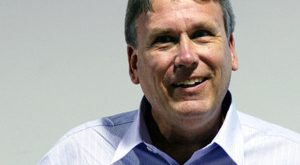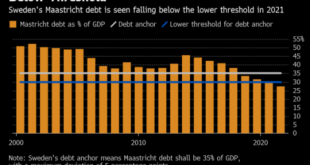The last decade has witnessed a significant revival of belief in the efficacy of fiscal policy and mainstream economics is now reverting to the standard positions of mid-1970s Keynesianism. On the coattails of that revival, increased attention is being given to the doctrine of Modern Money Theory (MMT) which makes exaggerated claims about the economic […]
Read More »How to cure National Debt Hysteria
How to cure National Debt Hysteria [embedded content]
Read More »Job Guarantee and inflation control
Job Guarantee and inflation control The employment buffer stock approach, which is more usually referred to in the literature as the Job Guarantee (JG), defines a policy framework in which government operates a buffer stock of jobs to absorb workers who are unable to find employment in the private sector … The JG approach stands in contradistinction to the NAIRU approach because instead of manipulating the employment rate by creating unemployment when...
Read More »The randomistas revolution
In his new history of experimental social science — Randomistas: How radical researchers are changing our world — Andrew Leigh gives an introduction to the RCT (randomized controlled trial) method for conducting experiments in medicine, psychology, development economics, and policy evaluation. Although it mentions there are critiques that can be waged against it, the author does not let that shadow his overwhelmingly enthusiastic view on RCT. Among mainstream economists, this...
Read More »Katalys analys klär av det ekonomisk-politiska etablissemanget
Katalys senaste rapport om behovet av att införa en statlig e-krona som alternativt betalningsmedel till den av privata banker skapade inlåningen är både läsvärd, insiktsfull och kontroversiell … För de som följt den internationella ekonomiska debatten är det inga nya insikter, men i den svenska nyliberala ankdammen är det ännu obegripligt. Bankernas inlåning, det vill säga de fordringar på bankerna som personer och företag har på bankerna och som vi till 97 procent använder...
Read More »Economics becomes more precise and rigorous — and totally useless
Economics becomes more precise and rigorous — and totally useless Nowadays there is almost no place whatsoever in economics education for courses in the history of economic thought and economic methodology. The standard view among mainstream economists is that students shouldn’t think about what they are doing, but just do it. This is deeply worrying. A science that doesn’t self-reflect and asks important methodological and science-theoretical questions...
Read More »IPA’s weekly links
Couldn’t make it to Oxford to the CSAE conference? Better call Dave.Guest post by Jeff Mosenkis of Innovations for Poverty Action First, he’s back! David Evans, ensconced in his new digs at the Center for Global Development, brings us a roundup of over 275 papers from the Center for the Study of African Economies (CSAE) conference, in a fancy new expandable format indexed by topic. (Honestly it’s probably better than going to the conference to have someone review all those papers and give...
Read More »Sweden’s vanishing debt feeds urgent calls for a spending boom
Sweden’s vanishing debt feeds urgent calls for a spending boom Sweden now has so little debt that many are starting to wonder why the government isn’t spending a lot more … The biggest Scandinavian economy, which relies on global trade for about half its output, is slowing down. But the government has so far appeared reluctant to use its fiscal leeway to fight that trend. That’s drawn criticism from analysts, with some even referring to the government’s...
Read More »Use ECB’s money-creation capacity to support environmental projects
Use ECB’s money-creation capacity to support environmental projects There is no limit to the amount of financial assets the ECB can buy. In principle, it could purchase all existing financial assets (all bonds and shares, for example) … There is also no restriction on what types of assets the ECB can buy … It could replace the old bonds with new ‘environmental bonds’, issued to finance environmental projects. The bottom line is that it is perfectly possible...
Read More »Nein — der Gender-Pay-Gap ist kein Mythos
Nein — der Gender-Pay-Gap ist kein Mythos Der Bruttostundenlohn von Frauen liegt in Deutschland 21 Prozent unter dem der Männer. Damit ist der deutsche sogenannte Gender-Pay-Gap einer der höchsten unter den Industrieländern. Zahlreiche wissenschaftliche Studien zeigen, dass ein großer Teil der Lohnlücke durch Faktoren erklärt werden kann, die auf den ersten Blick nichts mit dem Geschlecht zu tun haben. Das sind etwa Unterschiede in der Berufserfahrung, die...
Read More » Heterodox
Heterodox








